- 1. You’re Not Eating Enough Protein And Fat
- 2. You’re Metabolically Inflexible
- 3. You’re Sleep Deprived
- 4. You’re Eating Too Many Carbs
- 5. You’re Dehydrated
- 6. You’re Distracted While Eating
- 7. You’re Drinking Too Much Alcohol
- 8. You’re Drinking Your Calories
- 9. You’re Stressed
- 10. You’re Taking Certain Medications
- 11. You Have a Medical Condition
- 12. You’re Leptin Resistant
- 13. You’re Not Getting Enough Nutrients
- 14. You’re Not Consuming Enough Calories
Do you feel hungry all the time, even if you just ate? This experience is common but not inevitable. In this article, I’ll explain some of the key science behind hunger, list the main reasons why people feel hungry (even shortly after eating a big meal), and outline the tips and lifestyle tweaks you can implement to reduce your food cravings.
Before we dive into the top reasons why you feel hungry, it’s worth pointing out that there is an important difference between food cravings and true hunger.
Most of the time, when we feel constant hunger our body is just craving certain foods we might have gotten addicted to (such as processed carbohydrates that impact the opioid receptors in our brain) or nutrients we’re deficient in (such as protein or certain vitamins and minerals). I’ll talk more about this and give examples throughout this article.
In contrast, true hunger manifests if your body is running out of resources and needs food to avoid starvation. Chances are that what you’ve experienced isn’t true hunger but strong cravings caused by one or more of the factors mentioned below.
Top Reasons Why You Feel Hungry
My experience with hunger is closely associated with intentionally skipping meals as part of my intermittent fasting routine, which I’ve been practicing for several years.
When I first started out with fasting, I often had to deal with strong hunger pangs — even if I was only depriving myself of food for short periods. So I set out to learn more about what drives hunger in order to find ways to change how I perceive it.
These days, I rarely feel hunger during my fasting periods, which routinely last for 16 hours at a time. So I’m confident that implementing the tips below can help you manage your hunger, especially if you’re just looking for ways to reduce your appetite.
If you’re currently in the middle of a fast and wondering how to deal with your cravings, or if you’ve have had trouble fasting because your cravings are too uncomfortable, be sure to check out my list of tips for curbing your hunger while fasting.
1. You’re Not Eating Enough Protein And Fat
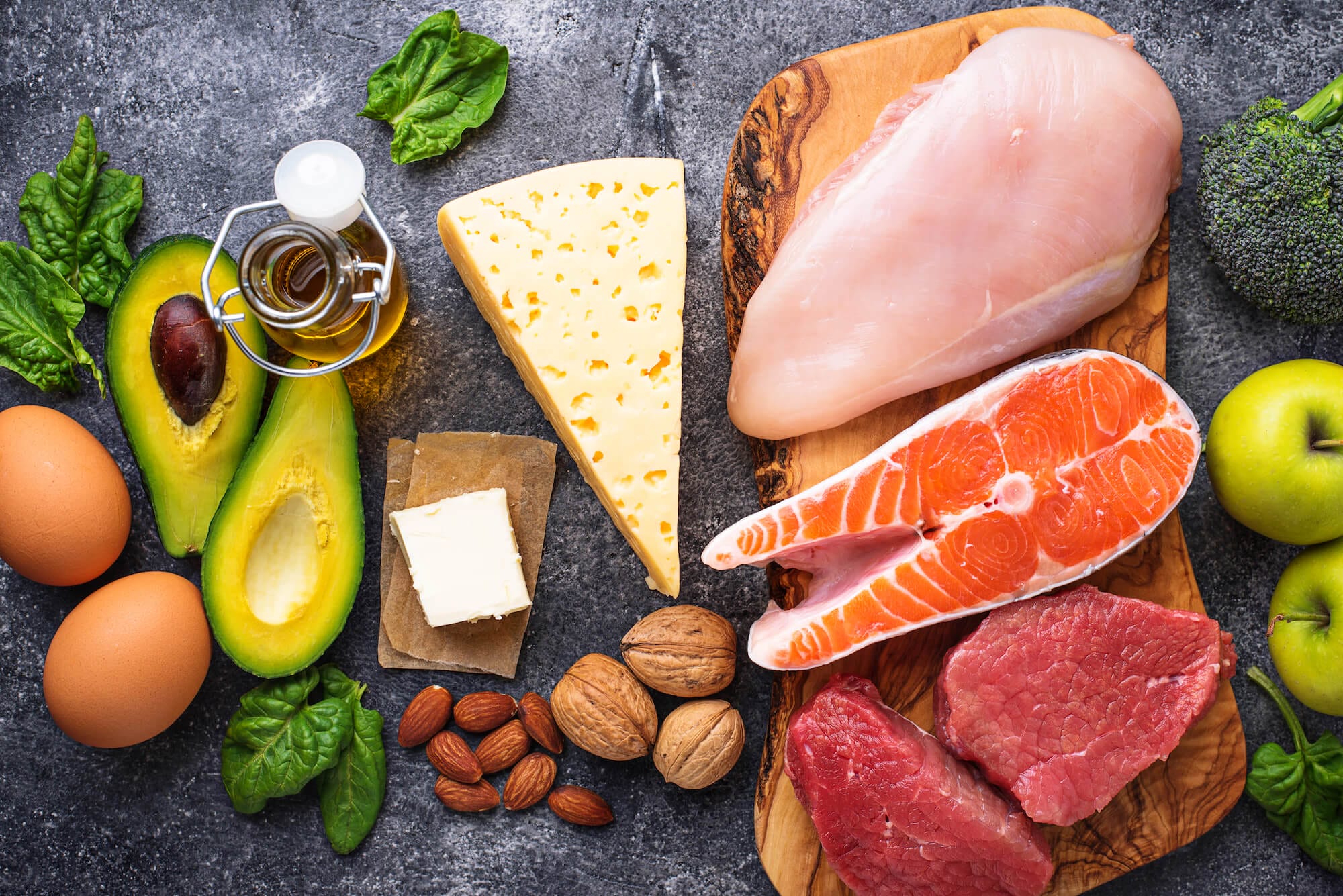
One of the primary reasons why you feel hungry shortly after having had a meal is because you didn’t consume enough protein and fat — two macronutrients your gut digests relatively slowly in comparison to carbohydrates.
In a nutshell, the more time your digestive system needs to digest food, the longer you’ll feel satiated.
Additionally, consuming protein positively influences ghrelin and leptin levels, two hormones that control appetite and satiety. Plus, studies have demonstrated that high protein diets increase thermogenesis (the production of heat), which increases the feeling of fullness.
Meanwhile, fat slows gastric emptying (making you feel full for longer) and may influence ghrelin and leptin levels in some people (depending on genetic factors).
The bottom line is that if you have adequate amounts of protein and fat in your meals, you’re less likely to get hungry shortly after eating.
On the flip side, if your diet consists predominantly of fast-burning carbs, you’re likely to feel hungry again shortly after the food has left your stomach. There is also an issue with rapidly rising and falling blood sugar levels after the consumption of carbohydrates, especially in the context of refined carbs such as flours and sugars (which we’ll talk about more later in this article).
These facts are why I ensure that protein, together with healthy fats (from animal-based sources), makes up the majority of calories of each meal.
Another issue with insufficient protein consumption is that it can trigger protein cravings, a phenomenon known as the protein leverage hypothesis. As explained in the introduction to this article, many people mistake cravings for hunger. In other words, if your body craves protein, you might experience that as hunger, even though it’s technically a different phenomenon.
Unfortunately, many people respond to feeling hungry by eating energy-dense junk that lacks protein. In the case of protein cravings, this exacerbates the issue — because you still haven’t eaten any protein — leading to more cravings (i.e., the feeling you perceive as hunger).
Scientists believe that this overconsumption of processed junk foods in response to protein cravings is a major contributing factor to our obesity epidemic.
2. You’re Metabolically Inflexible
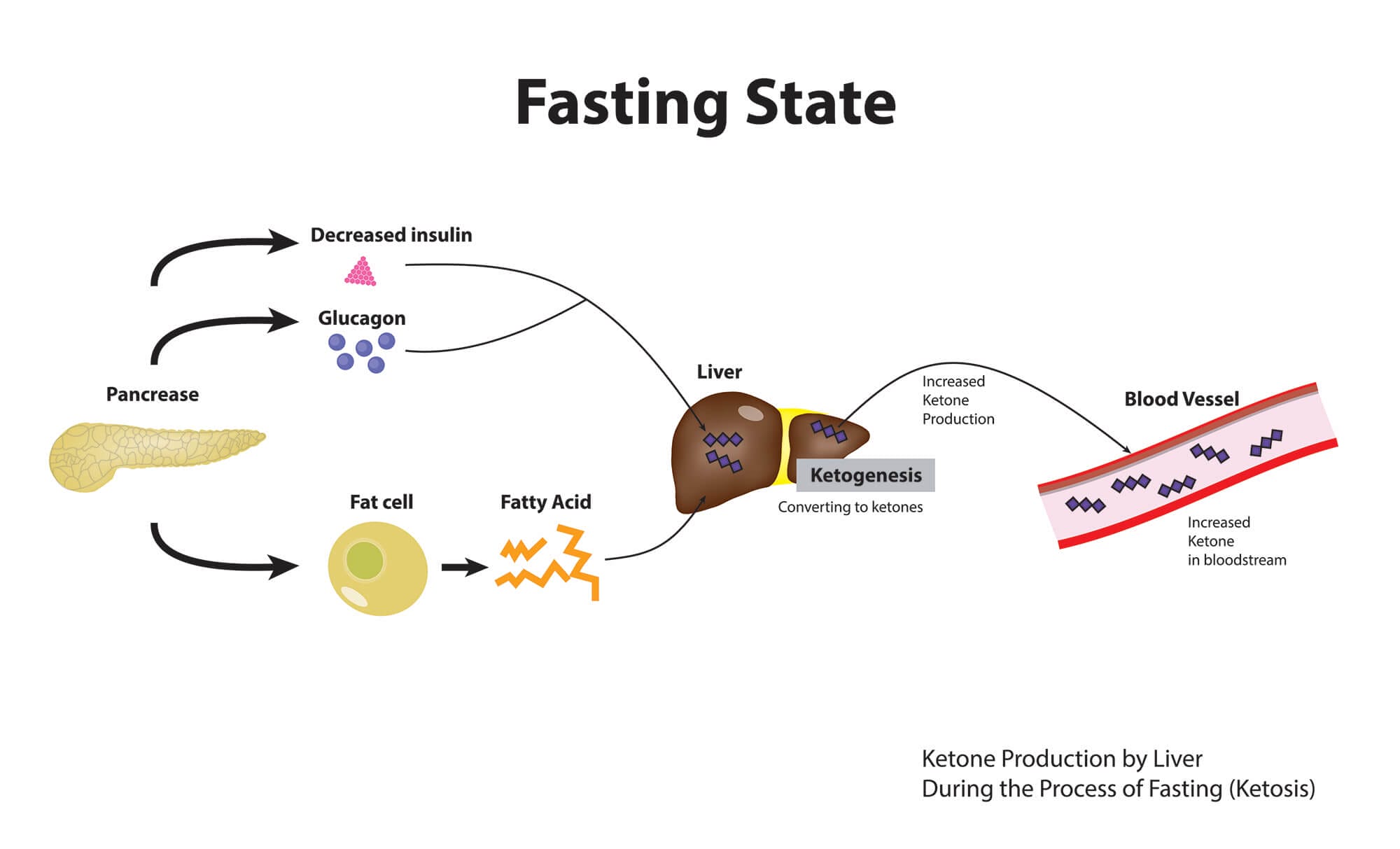
Without getting into the nitty-gritty of human metabolism, it’s important to understand that your body can burn different types of fuel for energy, including glucose, ketones, fatty acids and lactic acid.
Some of those fuel types can come from the food you eat, including glucose (from carbohydrates), fatty acids (from dietary fat) and ketones (from exogenous ketone supplements).
However, some can also be produced by the body itself, including ketones (by converting fatty acids), lactic acid, and glucose (from stored glycogen, or from the conversion of amino acids).
Most people who follow a standard American diet rely on glucose as their primary fuel source. Once their bodies have burned off the glucose made from the carbs consumed during their last meal, their blood sugar levels drop and they feel hungry again.
The brain is one of the first organs that responds to low fuel levels. When it senses that you’re running out of fuel, it triggers the release of powerful hormones (including ghrelin) that make you feel hungry.
This response is an ancient mechanism that helps ensure human survival by prioritizing finding food over other pursuits. But if you’re metabolically flexible, your body can quickly tap into alternative fuel sources by burning body fat to create ketones.
Even the skinniest among us have 20,000+ calories worth of fat on our body that can be used for energy in the absence of food. So skipping a meal or two shouldn’t be any problem whatsoever. Unfortunately, most of us have lost our metabolic flexibility due to poor dietary choices leading to hunger pangs, brain fog and irritability when our constant food supply is suddenly interrupted.
Considering that metabolic flexibility is not only important for avoiding hunger pangs and irritability, but is also crucial for maintaining optimal health, I highly recommend working on your metabolic flexibility by temporarily adopting a low-carb diet (such as a Paleolithic ketogenic diet), implementing intermittent fasting, and banning refined carbs and seed oils from your diet.
You can also use a metabolic breath analyzer like Lumen, which tells you whether you’re burning fat for fuel and gives you specific tips for improving your metabolic flexibility based on your daily readings.
3. You’re Sleep Deprived

Sleep deprivation negatively impacts ghrelin and leptin levels — two hormones that are responsible for regulating your appetite. So if you didn’t get enough sleep you may notice an increased appetite as a result of lower-than-normal leptin and higher-than-normal ghrelin levels as your body attempts to make up for your lack of energy.
On top of that, a lack of sleep increases the likelihood of making poor dietary choices, often leading to the overconsumption of highly-processed junk food.
If you’re struggling with getting adequate sleep, make sure you check out my articles about why you might have trouble falling asleep and how to sleep better and fall asleep quicker.
You may also want to leverage a reliable sleep tracking device to gather data about how well (or how poorly) you’re sleeping. I’ve been wearing the WHOOP Strap for a number of years, and the insights it has provided have allowed me to take concrete action to protect and improve my sleep, leading to better overall health.
4. You’re Eating Too Many (Refined) Carbs

Your body uses carbohydrates predominantly as a rapid source of energy. In other words, your digestive system and liver metabolize carbs relatively quickly by converting them into glucose, which your cells can use for fuel with the help of insulin.
That process leads to a sudden spike and subsequent drop in blood glucose levels. Once your blood sugar levels have dropped, you’ll likely feel hungry again.
That’s particularly true if your cells have already become insulin resistant (due to the chronic consumption of refined carbs and industrial seed oils). When that’s the case, your body may release more insulin than necessary to remove glucose from your bloodstream, leading to low blood sugar levels (also known as hypoglycemia) and the release of the hunger hormone ghrelin.
If your response to feeling lightheaded and hungry is to consume more carbohydrates, you’ll end up in a vicious cycle of constantly feeling hungry.
As a result, I highly recommend cutting refined carbs and seed oils out of your diet and replacing them with animal-based sources of protein and fat (which will help you maintain stable blood glucose levels).
If you’re interested in learning more about how food impacts your blood sugar levels, I highly recommend wearing a continuous glucose monitor (CGM) for a few weeks. Check out my article comparing Levels Health vs. NutriSense — two of my favorite CGM management platforms that provide deep insight into your blood sugar readings.
5. You’re Dehydrated
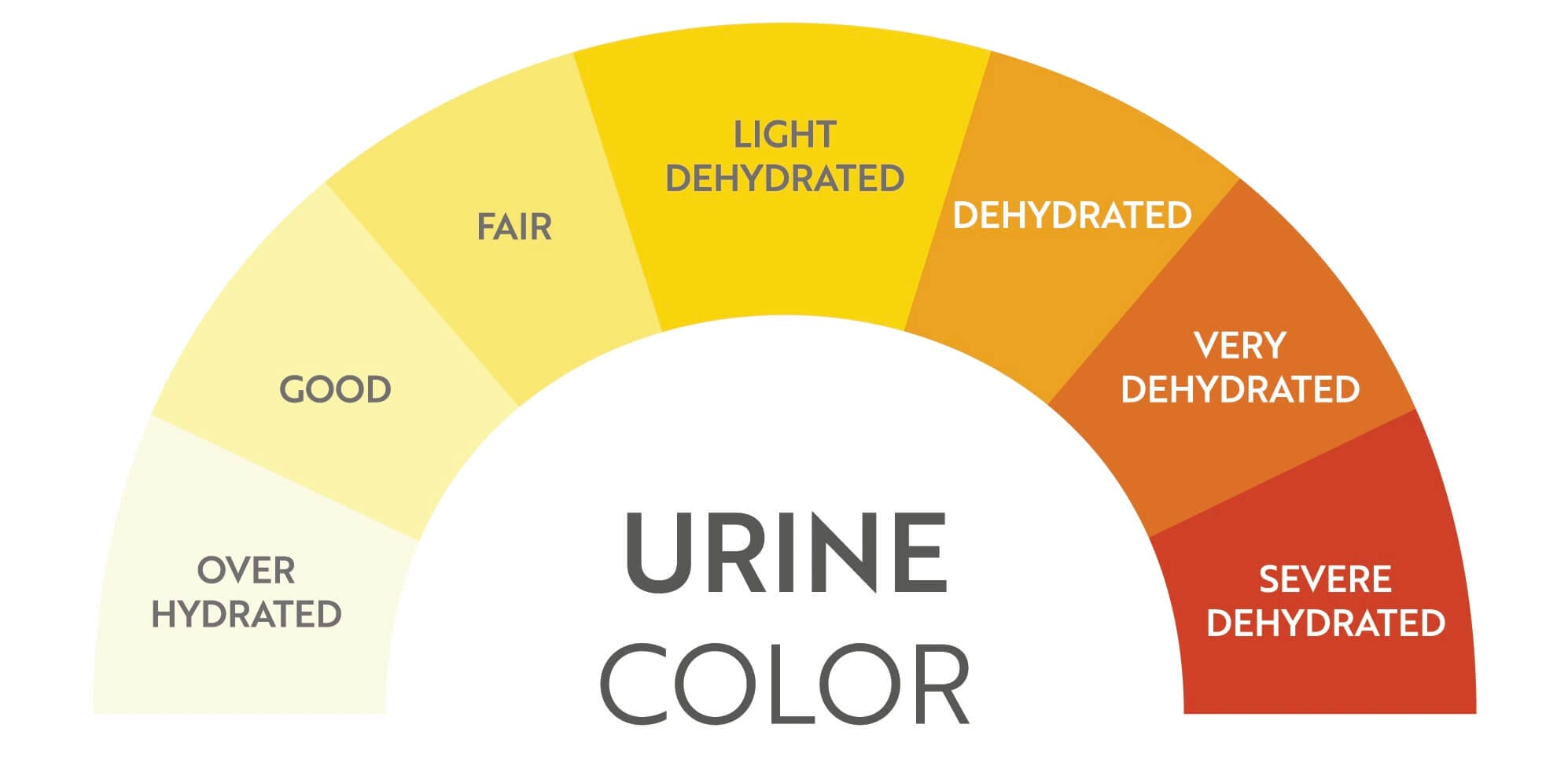
As I described in my article about how to curb hunger while fasting, mild dehydration can sometimes manifest as hunger. The best way to tell if you’re dehydrated is to look at your urine. If it’s pale yellow, you’re suffieicently hydrated. But if it’s dark yellow, it’s time to drink a glass of water or two.
Just don’t overdo it. Drinking more water than your body needs isn’t necessarily better. You can also overhydrate, leading to side effects (such as electrolyte deficiency) that can negatively impact how you feel.
6. You’re Distracted While Eating (And You’re Eating Too Fast)
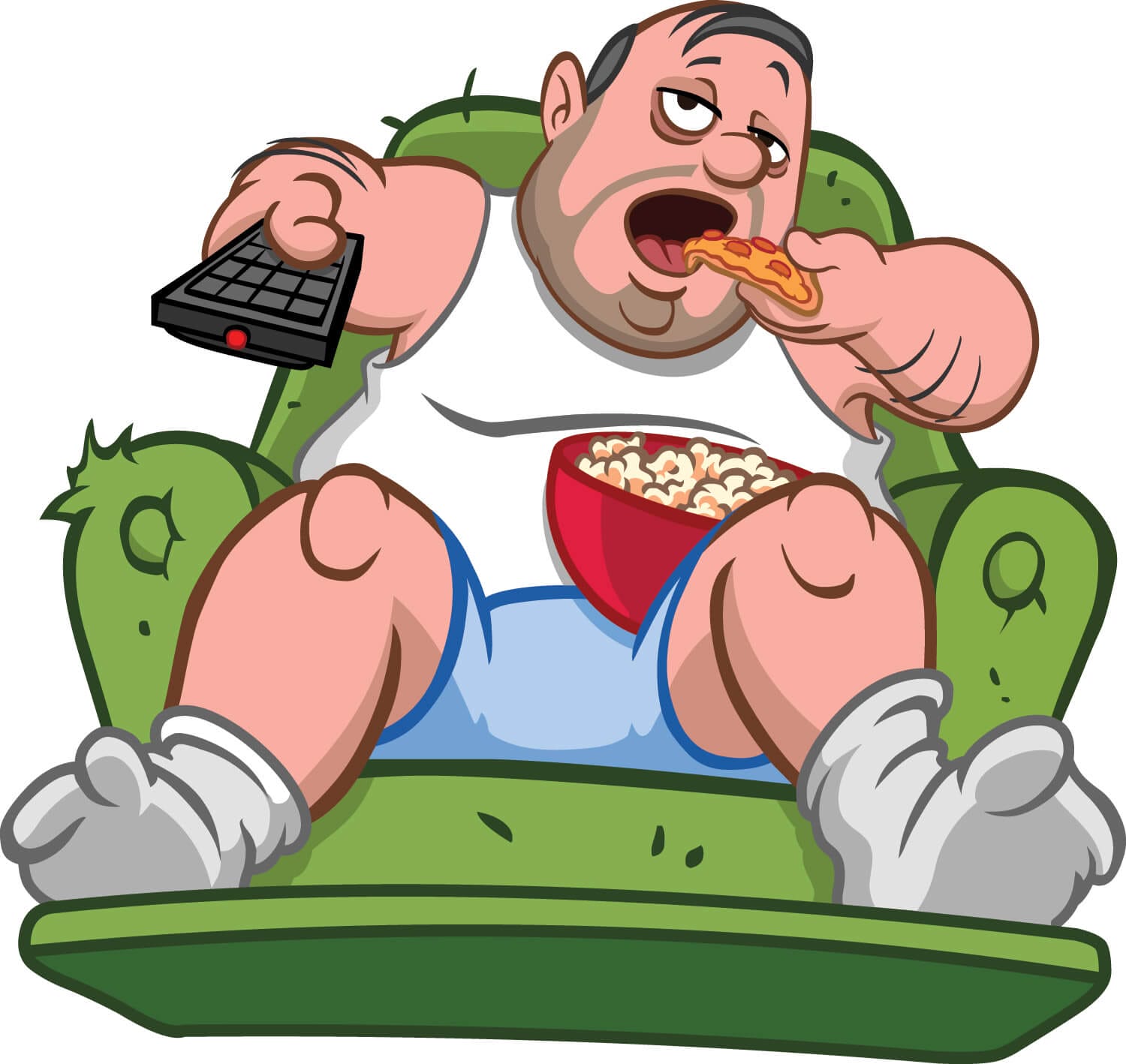
Properly digesting food doesn’t start in your gut. In fact, your digestive system relies on your senses (e.g., sight, smell and taste) to release digestive enzymes even before the food has reached your gut. That’s one of the reasons why I recommend looking at your food and smelling it before you put it into your mouth, and why chewing is crucial for proper digestion.
If you’re watching TV and responding to emails while consuming a meal, you likely disrupt some of those processes. In fact, a systematic review and meta-analysis of the effect of food intake memory and awareness on eating concluded that distracted eating increased the intake of food after the meal. In other words, you’ll end up eating more at the next meal or snack.
Additionally, you’re more likely to eat quickly when you’re distracted or in a hurry. Doing so will likely make you eat more food than you need, because you’re not giving your body enough time to release appetite-suppressing hormones, such as leptin.
Anecdotally, I’ve had the experience that eating slowly and without distraction keeps me satiated for longer while reducing the likelihood of overeating and weight gain.
So take your time with each meal and be aware of what you’re putting into your mouth.
7. You’re Drinking Too Much Alcohol

Have you ever been to a bar or party where you drank too much and suddenly got the munchies? That’s because alcohol lowers leptin levels, causing an increase in appetite. Additionally, scientists believe that alcohol enhances the short-term reward effects of food. In other words, food tastes better when you’re drinking, causing you to eat more of it.
There’s a reason why restaurants encourage you to start off with a drink: they know that by doing so, you’ll likely consume more food. That’s why I recommend avoiding the consumption of alcohol before and during meals.
But even if you manage to control your portion size, consuming alcohol before, during or after a meal will likely make you feel hungry in the near future again. So I’d recommend skipping the booze altogether if you’re having trouble managing your appetite.
8. You’re Drinking Your Calories

Studies suggest that your body digests liquid food much faster than solid food. In other words, if you’re leveraging meal replacement shakes or post-workout protein powders, be prepared to feel hungry quicker than if you had consumed the same calories from real food.
Additionally, you likely spend much less time consuming liquid than solid food. So by the time you finish your meal replacement shake, your body hasn’t had a chance yet to release hunger-suppressing hormones, such as leptin. As a result, you might still feel hungry even after guzzling down 600 calories.
I recommend using healthy meal replacement shakes only strategically, such as when you’re traveling and may have trouble finding healthier options.
9. You’re Stressed

As discussed in my article about the top reasons why you’re not losing weight, stress increases cortisol and ghrelin levels, and thus increases your desire to eat. This is an ancient survival mechanism that gets triggered by modern-day stressors that aren’t necessarily life-threatening and don’t require the consumption of extra calories.
For example, consuming a bag of potato chips is likely not going to help you better cope with medical bills, but the ancient parts of your brain aren’t great at telling the difference between non-life-threatening financial stress and the stress that comes from getting chased by a lion.
When I’m stressed and my cortisol levels rise, I get the munchies. But I’m usually aware of what’s happening and implement one of the stress management tips I’ve shared on this blog, including breathing exercises, physical activity or meditation.
However, the best way to avoid hunger pangs caused by stress is to recognize a stressful situation before it becomes unmanageable.
For example, we recently returned from a three-week vacation in Europe and work had been piling up, making me feel overwhelmed (and incredibly hungry). Once I felt the need to eat — despite having had a full meal just a few hours before — I took the dog for a relaxing 45-minute walk. Upon my return, I was no longer hungry, completed my work and enjoyed my second and last meal of the day several hours later.
10. You’re Taking Certain Medications
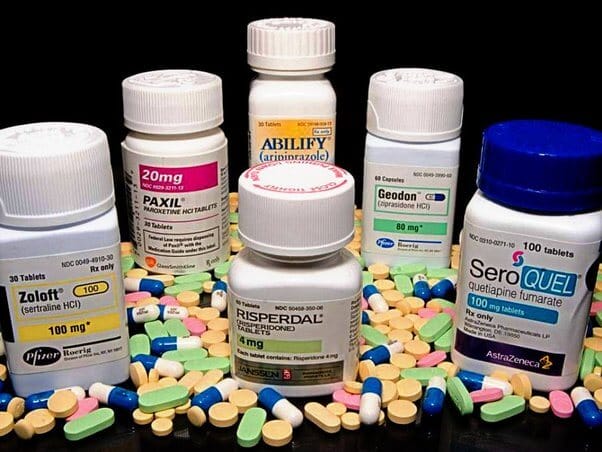
Certain medications — including antipsychotics (e.g., clozapine and olanzapine), antidepressants, mood stabilizers, corticosteroids and antiseizure drugs — can increase your appetite.
Insulin can also negatively impact how hungry you feel, particularly if you have more insulin in your bloodstream than required to maintain normal blood sugar levels.
I’ve also seen reports suggesting that the hormones in oral contraceptives can increase ghrelin levels, making you feel hungry.
If you’re on one of the above-mentioned medications and feel constantly hungry, I recommend consulting a knowledgeable health professional to see if you can tweak the dosage or utilize a different treatment.
11. You Have a Medical Condition

There are several medical conditions that can make you feel hungry, including diabetes, hypoglycemia, hyperthyroidism, depression, anxiety and others.
For example, excessive hunger and thirst are classic symptoms of diabetes caused by chronically elevated blood sugar levels.
While it might sound counterintuitive that high (as opposed to low) blood sugar levels make you feel hungry, the reason for this is likely rooted in insulin’s inability to shuttle glucose into cells so they can use it for energy.
That condition is known as insulin resistance (the underlying cause of Type 2 diabetes) and it prevents the cells from getting enough fuel to operate efficiently. The brain tries to deal with that issue by releasing chemicals that encourage you to eat more.
On the flip side, lower-than-normal glucose levels (hypoglycemia) can also make you feel hungry, as can an overactive thyroid gland (known as hyperthyroidism).
To check for many of these conditions, I recommend getting a full metabolic panel that tests for all the biomarkers I described in my article about what it means to be metabolically healthy.
12. You’re Leptin Resistant (and Have Chronically Elevated Ghrelin Levels)
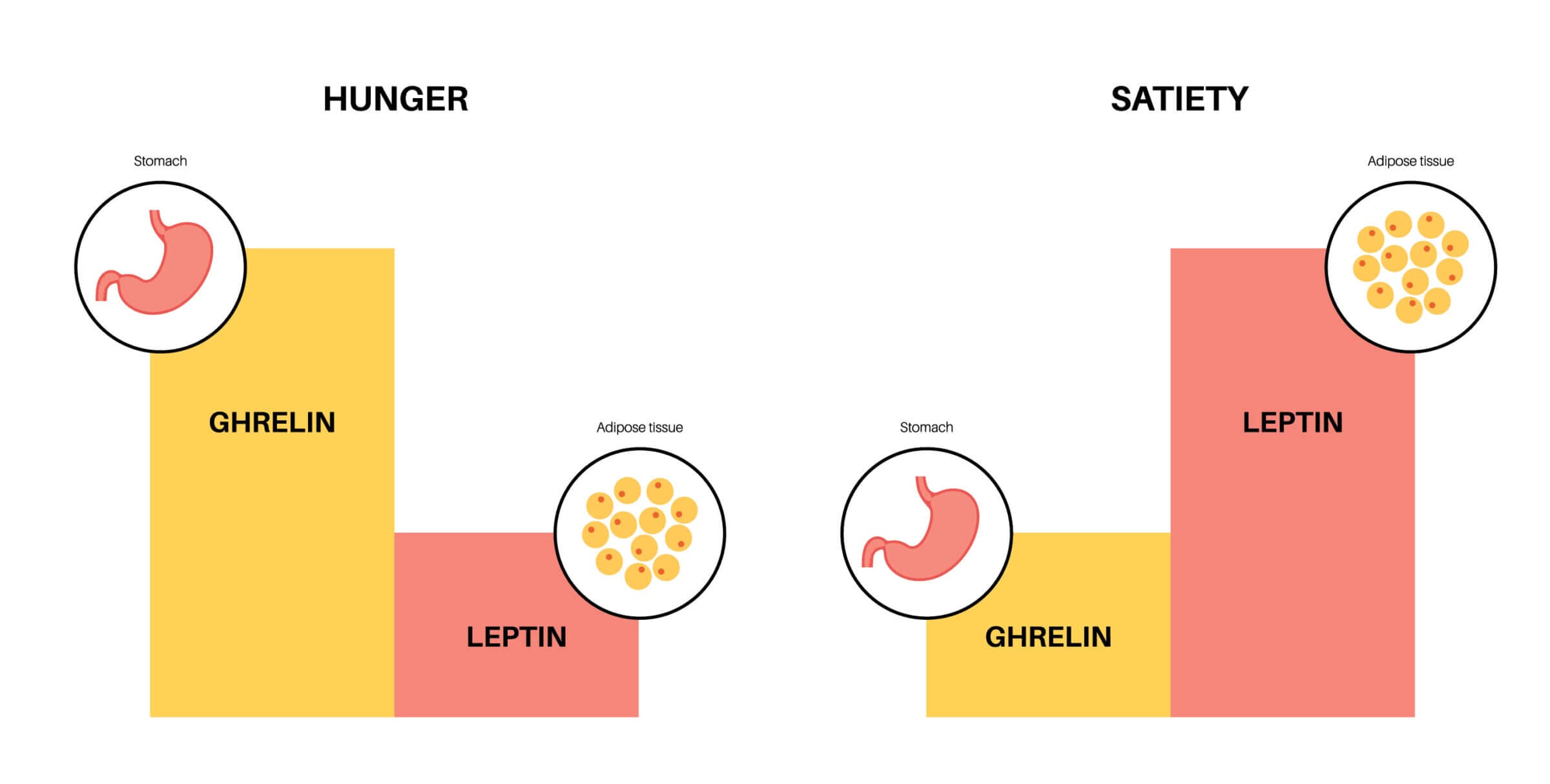
The chronic consumption of highly-palatable processed foods — such as refined carbohydrates and industrial seed oils — can lead, over time, to leptin resistance.
Leptin resistance is a condition where your brain doesn’t respond to the appetite-suppressing signals of leptin, causing you to remain hungry after meals and thus to overeat.
The best way to treat leptin resistance is to make changes to your diet by cutting out all processed carbohydrates. In fact, I’d highly recommend adopting a very low-carb ketogenic diet, such as a carnivore diet, to help normalize your leptin levels.
You can learn more about what to eat to treat leptin resistance in my article about the best diets for weight loss.
Similarly, you may also suffer from chronically high ghrelin levels caused by poor food choices and some of the other factors mentioned throughout this article. The fix for high ghrelin levels is also rooted in making the proper dietary changes, as indicated in the previous paragraph.
However, keep in mind that fluctuations in ghrelin levels throughout the day are normal based on your eating patterns. So if you always have breakfast at 8 a.m., you’ll likely start feeling hungry around that time. Knowing when your ghrelin levels rise (and subsequently drop) can be an essential tool for overcoming temporary hunger pangs.
13. You’re Not Getting Enough Nutrients

While ghrelin is most famously known as the hunger hormone, it does much more than make you hungry.
While we don’t know everything there is to know about this vital substance, studies have shown that ghrelin plays a pivotal role in nutrient sensing. Deficiencies in certain vitamins and minerals can increase ghrelin levels, thus making you hungrier than usual.
For example, one study demonstrated that both ghrelin and leptin levels change based on serum concentrations of vitamin D. In other words, increasing vitamin D intake led to an increase in both leptin and ghrelin levels, but with a more favorable ratio of leptin to ghrelin.
The takeaway here is that if you’re deficient in micronutrients (vitamins and minerals), you may experience higher ghrelin levels that make you feel hungry more often.
The best way to increase your micronutrient intake is by consuming beef organs, which are rich in bioavailable and readily-absorbable micronutrients. If you don’t like the taste or texture of fresh beef organs (many people don’t), I recommend leveraging freeze-dried beef organ capsules, such as the ones we sell at MK Supplements. They’re completely tasteless and easy to swallow while providing you with most of the micronutrients your body needs on a daily basis.
14. You’re Not Consuming Enough Calories
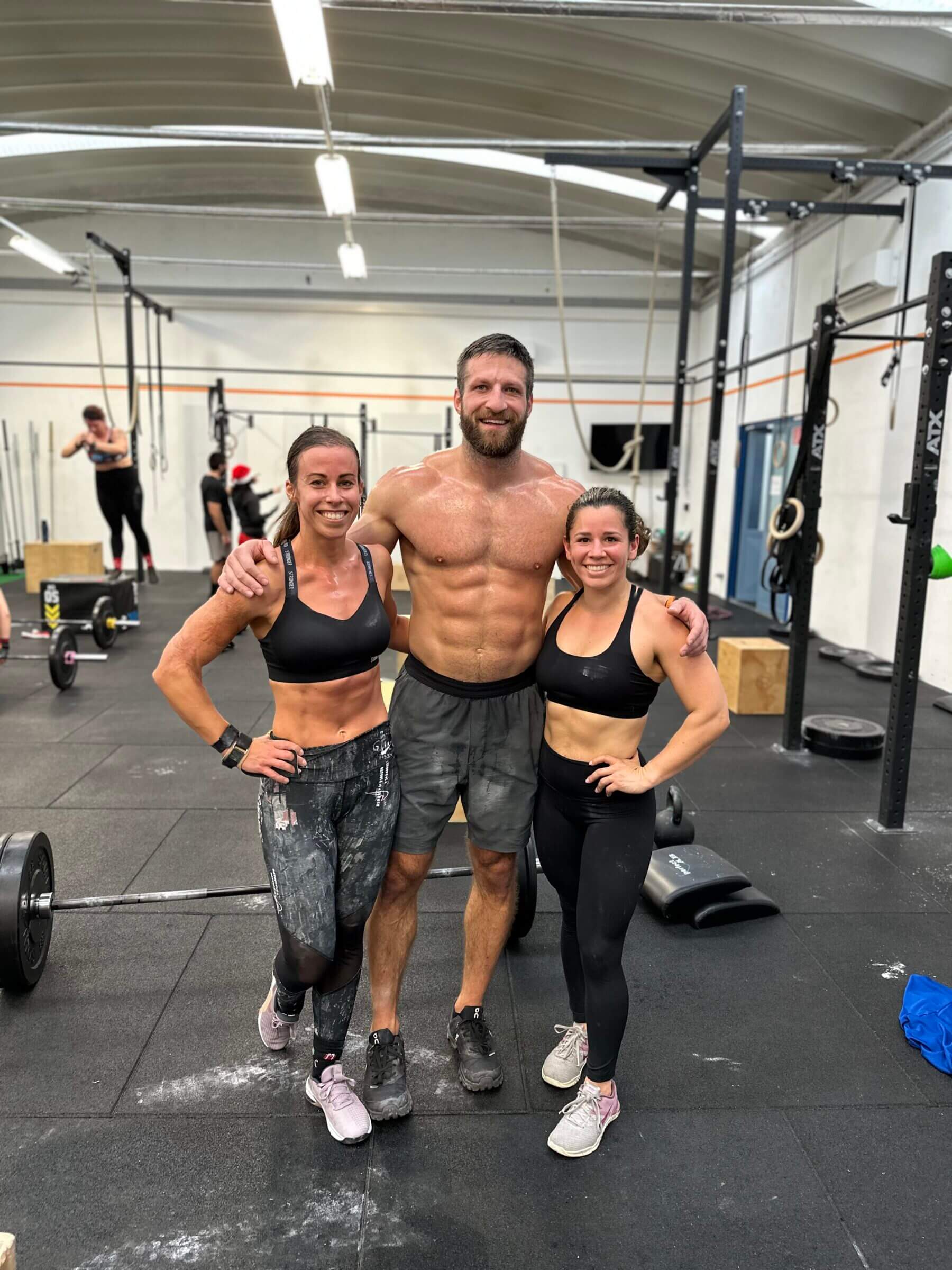
This may seem fairly obvious, but it’s important to note that there is a chance your hunger is because you’re not consuming enough calories.
One reason for that could be that you exercise a lot, which can increase your energy demands by several hundred calories or more. If that’s the case, and you’ve ruled out everything else on this list, I recommend increasing your food intake by consuming more protein and fat.
On the other hand, you may have embarked on a caloric-restriction diet to lose weight. If that’s the case, I highly recommend you stop consuming fewer calories than your body’s required energy intake. Aside from making you feel like crap, this strategy doesn’t work for weight loss in the long run.
To learn about more effective strategies, check out my article on the best diets for weight loss.
Frequently Asked Questions
Dietary fiber can slow down both the conversion of other carbs to glucose and gastric emptying, as well as increase stool volume. All three of these factors can help make you feel full for longer. However, there are several issues associated with high-fiber diets that you should consider.
For example, fiber provides food for both the good and bad bacteria in your gut. So if you suffer from gut dysbiosis, irritable bowel syndrome or similar conditions, consuming a high-fiber diet is likely counterproductive.
For example, as mentioned in my article about how to curb hunger while fasting, a recent study published in Nature has shown that high-fiber diets can feed certain types of (bad) bacteria that produce inflammatory compounds that exacerbate conditions such as rheumatoid arthritis.
Additionally, most high-fiber foods (such as whole grains) contain toxins that are detrimental to your health. You can learn more about that in my article comparing the health benefits of plants vs. meat.
In a nutshell, I recommend reducing your intake of refined carbs to avoid drastic changes in blood glucose levels and the subsequent feeling of hunger.
The reason a person may feel hungry before their period is because the body is preparing for the increased energy demands of a potential pregnancy. That’s completely normal and nothing to worry about. However, just because your body is demanding more energy doesn’t mean you should be eating junk food.
Instead, make sure you feed your body nutrient-dense foods from animal-based sources, including pastured meats and organs, wild-caught seafood and everything else I mention in my Food & Beverage List for the Ultimate Human Diet.
Midnight snacking is a common phenomenon that’s likely caused by poor food choices during the day and increased cortisol levels at night (also known as the “second wind”). The latter can be caused by stress or by a disrupted circadian rhythm.
If you have a consistent bed and wake time, your body starts releasing certain sleep-inducing hormones (including melatonin) a few hours before that time. If you don’t go to bed when you feel the normal sleep pressure (also known as homeostatic sleep drive) — but instead expose yourself to artificial junk light from your TV and mobile phone — melatonin excretion by the pineal gland is suppressed and sleep pressure is lowered. That can cause a rise in cortisol levels because melatonin and cortisol levels are inversely correlated.
When that happens, ghrelin levels may rise, making you feel hungry. If you remain in that pattern long enough, your body will respond by automatically releasing ghrelin around the same time every day. That leads to chronic midnight snacking, which is anything but healthy because it causes elevated blood sugar levels (when they should be low), and because it causes your digestive system to be active (which redirects resources away from other parts of your body, among other things).
Common Reasons You Feel Hungry: Summary & Final Thoughts
There are many factors that can influence how hungry you feel, as well as when you feel that hunger. However, if you’re metabolically healthy and maintain healthy eating patterns, you should never feel extreme hunger — especially not if you just ate a few hours ago.
If you do, there is likely something off that requires appropriate lifestyle changes.
One of the things I noticed after making changes to my dietary lifestyle and implementing intermittent fasting was that I was no longer controlled by hunger.
I was suddenly free to do stuff without having to think about bringing a snack of planning my daily activities around set meal times. In a sense, improving my metabolic health and changing my perception of hunger has improved the quality of my life.
These days (I’m 41 as of this writing), I enjoy one or two meals a day without feeling hungry in between. And I’m the healthiest I’ve ever been.
If you’re struggling with feelings of extreme hunger, I recommend checking out some of the resources I linked to throughout this article to learn more about improving your metabolic health and developing healthier eating habits.
And if you’re interested in using fasting to improve your health but have found it too difficult, check out my list of strategies to make fasting easier.

Michael Kummer is a healthy living enthusiast and CrossFit athlete whose goal is to help people achieve optimal health by bridging the gap between ancestral living and the demands of modern society.


